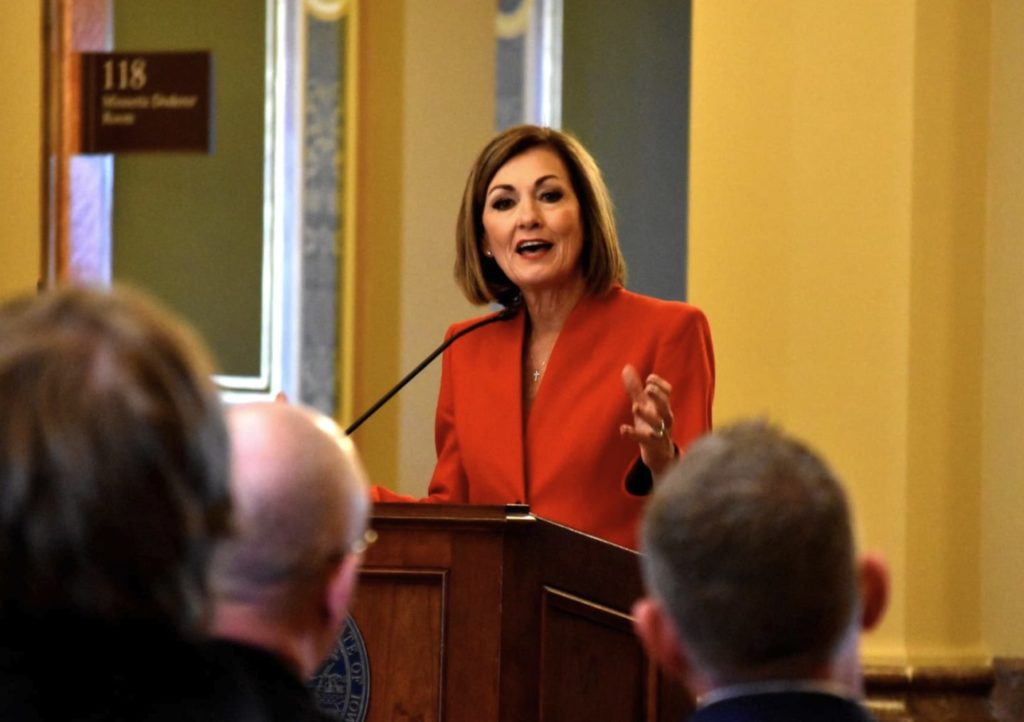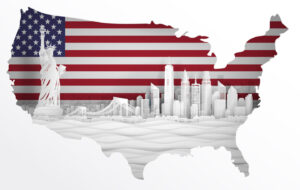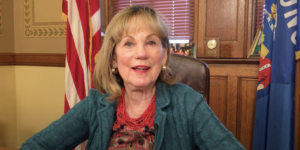How Iowa Gov. Kim Reynolds eventually created big majorities on ‘education freedom’
In a talk to the American Legislative Exchange Council (ALEC), Iowa’s Republican Gov. Kim Reynolds said prioritizing school choice in elections year after year eventually led to strong majorities…

In a talk to the American Legislative Exchange Council (ALEC), Iowa’s Republican Gov. Kim Reynolds said prioritizing school choice in elections year after year eventually led to strong majorities in its favor.
“Literally, what we did really was … we put education freedom on the ballot, and I am telling you, Iowans responded in a really strong way by large majorities,” Reynolds told the ALEC meeting in Denver.
Reynolds noted that at first, it was hard work, with slim majorities.
“I barely made it across the finish line in 2018. It was a tough year. I think I was saying earlier, if you rounded up, I think I won by 2%,” said Reynolds, about her first election as governor of the state.
Reynolds had assumed office in 2017 after Gov. Terry E. Branstad, a Republican, resigned. Before that, Reynolds served as lieutenant governor since 2011.
But it wasn’t just enough to campaign on the issue of school choice, said Reynolds. She also hit the road to win over skeptics, especially rural legislators and public school superintendents.
“I would go with lawmakers that represented rural areas, and I said, ‘Bring all your superintendents together. I don’t care if there [are] four, I don’t care if there [are] six. Let’s sit down and have a conversation,’” the governor said.
Reynolds has roots in rural Iowa and felt that even if she couldn’t convince the superintendents to support school choice, she could at least understand what they needed in terms of resources.
And her willingness to help them helped pave the way.
One thing the superintendents told her was that because they didn’t have salary parity with urban school districts, it was difficult to hold on to teachers.
“So, they would be a training ground for teachers, and they wanted to be able to pay the teachers more and keep them there and keep that consistency,” she said.
The result was that Reynolds talked with the rural school district executives about how the governor could “provide some wins for them” with teachers by helping them with the pay issue.
She also met frequently with legislators on potential legislation so they could suggest what would help their constituencies.
“The other thing that we did is, before the legislative session, we started bringing the lawmakers in, and we sat down at the table, and we walked through kind of the template of what the legislation looked like. Do you have any suggestions? Or here’s why we went this way. What do you think? … How can we make it stronger?”
By the 2022 gubernatorial election, Reynolds won a majority of 19%, a 17-point swing, by making “education freedom” the centerpiece of the campaign.
The previous work she did with legislators allowed Reynolds to have the legislation “laid out ready to go” after the 2022 election and claim a mandate.
“Now, we dropped the bill that night, and at the same time, we had pre-recorded a commercial and radio that hit the airwaves like the next day,” said Reynolds.
Reynolds said that every state can use some elements of what they did in Iowa to create universal school choice, but that it’s important for each state to make their own imprint on what education freedom means for citizens.
In Arkansas, for example, then-candidate Sarah Huckabee Sanders used some of the language that was deployed in Iowa but innovated, Reynolds told ALEC members.
“Sarah took kind of our, almost our same language, but then added some additional education reforms to that, so she could say, ‘I’ve got the best one in the country, and I’ve upped that governor from Iowa,’” said Reynolds.
Most important in passing school choice, Reynolds noted, is the commitment to the concept of education freedom, because it takes persistence to see it through among a chorus of doubters and the educational establishment that is reluctant to change.
In fact, for much of Reynolds’ time in politics, people said school choice was a losing issue.
But she realized that the COVID-19 crisis brought an unprecedented opportunity to use the newfound awareness of the failures in public education to innovate.
“It is hard, you know, but you just know [it will succeed], if I could stay strong, stay committed, have the resolve to follow it through, because I really think it is the right thing to do,’” concluded Reynolds.



